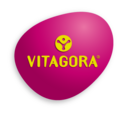Research topics
Objectives and main research topics
The PMB team conducts research into the response of microbial cells exposed to various technological and environmental perturbations, with the aim of developing processes for controlling the viability and functionality of microorganisms. The PMB team is interested, on the one hand, in microorganisms of interest to the food industry (ferments, probiotics) and, on the other hand, in pathogenic or spoilage microorganisms known for their ability to contaminate food matrices.
The team has structured its work around two main research topics
Processes for producing and preserving micro-organisms and microbial compounds of interest represent a major challenge in a wide range of industrial and academic fields. In the agri-food sector, processes for producing and preserving micro-organisms mainly apply to ferments and probiotics. The PMB team has been working for many years to understand the effects of cell disruption associated with these processes and has developed considerable expertise in this area.
Main research questions for topic 1 :
What are the molecular and structural bases of the reversible suspension of microbial cell activity? Can these processes, which are characteristic of naturally resistant microbes (anhydrobiotics and bacterial spores), be transposed to processes for preserving sensitive microorganisms?
How do the parameters for producing microorganisms (nature of the nutrient medium, physico-chemical conditions, operating parameters, cultivation of microbial consortia) influence the properties of the microbial biomass produced (resistance to stabilisation processes, functionality)?
Originality/Specificity of the research team in the topic 1 :
Unique expertise in the production and stabilisation of highly oxygen-sensitive micro-organisms of interest
The laboratory is a national and international leader in research into yeast dehydration processes. Recognised expertise through numerous collaborations with major manufacturers in the field (Lesaffre, Lallemand, etc.) and with other academic laboratories at international level.
Food product decontamination processes are worked on within the PMB team, with expertise in different types of decontamination using 'gentle' technologies such as high pressure, light or humidity control. Gentle" technologies include athermal processes that limit the deterioration of food matrices during processing. The work in this theme aims to respond to an increasingly important industrial issue, particularly with the reduction in the use of chemical inputs. The development of new strategies to combat the pathogenic micro-organisms present in the food industry requires the surrounding environment to be considered in all its complexity: composition of the food matrix, possible presence of other microbial species (ferments, other pathogens or spoilage flora).
Main research questions of the theme 2 :
How do structural changes in bacterial spores induced by physical treatments (high pressure, high temperature, intense light) impact the germination cycle and spore survival?
What cellular structures are altered in microorganisms when ultra-high intensity visible light treatments are applied?
What viral molecular targets should be given priority in order to develop processes for destroying viruses?
Originality/Specificity of the research team in the topic 2 :
Development of original mild inactivation techniques based on an understanding of structural alterations in micro-organisms in response to environmental disturbances (high pressure, ultra-high intensity light, water disturbances).
Work carried out on a variety of microbial models, including spore-forming bacteria and viruses responsible for gastroenteritis.
Generally speaking, the approach of the work carried out within the PMB team is to understand the cellular alterations that occur during and/or after the application of physical or physico-chemical perturbations on the scale of the single cell up to microbial populations. The perturbations applied are those encountered by microorganisms in preservation or destruction processes: variations in air humidity, temperature, pH, application of high pressure, exposure to ultra-high intensity visible light.
To carry out its research work, the team is developing specific processing equipment to control the kinetics and intensities of the perturbations. Visualisation cells that allow microorganisms to be observed under a microscope while the perturbations are being applied have also been developed in conjunction with the Imaging-Spectroscopy Platform (PIMS) site of the DImaCell platform, which is hosted by the team.







